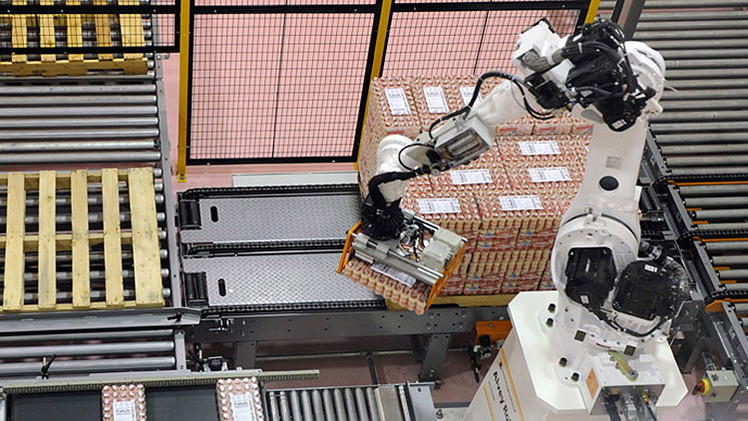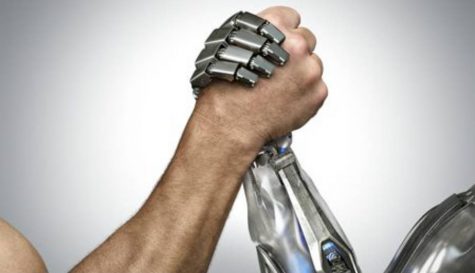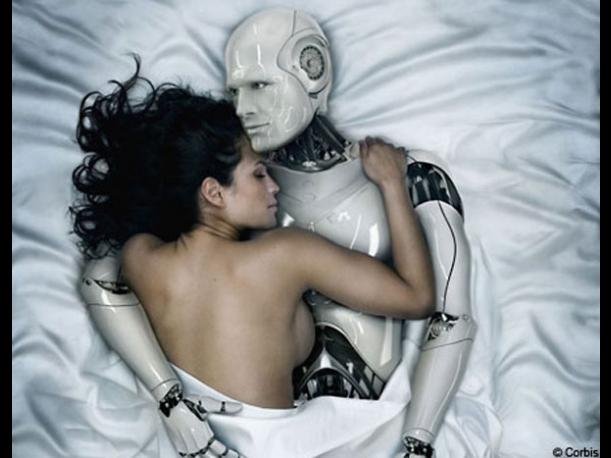The presence of robots will change the future of humanity. Experts say that many daily activities will be carried out with the help of robots, which will improve the quality of life of many people.

The help of intelligent machines, will not come from robots with physical characteristics like those of R2-D2 or Robotina, but human characteristics.
For Professor Alexander Waibel, of the Institute of Technology of Karlsruhe (KIT), the annoying tasks of daily life will be left in the hands of humanoid robots with whom we will also coexist day by day. His department focuses on improving the skills of robots, such as speech learning and language recognition.
"What we do here is to facilitate the interaction between robots and humans. It is important that people can interact with this type of machines. The robot must be able to talk to people, look from one side to another, must be able to grab something with their hands, they must be able to show something. There are groups that are dedicated to developing mime, gestures, smiles, and so on. Each development is about a human component, "says Professor Waibel.

Fears come from science fiction
To make movements, the robots use motors that have been placed on their bodies and that they even wear on their faces. By activating them they can move their eyebrows in a way that looks like they frown or raise them to signify surprise and happiness. The development in robotics is so impressive that it arouses concerns in society, but the KIT professor sees the situation from another angle.
"Some of the concerns of people come from science fiction. I do not believe that humans build things that can not be finally accepted by society. We build and buy things that seem nice to us and there are uses for what robots will be positive like the case of people who live alone and can not move or elderly people who need the help of nurses. There are many activities in which the help of robots is desired without becoming a philosophical conflict, "says Waibel.

Could the human being develop feelings towards a robot?
One of the most special characteristics of the human being is the ability to feel. You feel affection for the family, the pet and there are even objects that are given a sentimental value. It remains to be seen what will happen when you have the constant company of an object with human characteristics, which can speak, act and demonstrate feelings and whose only difference is that it is composed of cables and a computer.
According to the biomedical Rocío Cabrera, humanoid robots will gradually form part of our daily life. "With the passage of time, we will learn to integrate robots into our lives, as we have done with the rest of the technologies. However, we must remember that they will be used to improve and facilitate, not to replace, the interaction between humans, "says the Mexican located in France.
Robots can perform many activities autonomously. The robots designed to help at home, they will be given instructions, how to load the dishwasher and they will. However, after each of these actions, there is a programmed algorithm. Robots have no will of their own and probably never will.
"I do not believe that in the future everything is black and white but a mixture in which the machines also form part of society and allow interaction between humans. Yes, I think it can happen that humans develop feelings for robots. I do not know if one day you will not see a difference between humans and robots or if you do not want to see the difference. That is the question and the concern, "says Professor Waibel.
One of the most special characteristics of the human being is the ability to feel. You feel affection for the family, the pet and there are even objects that are given a sentimental value. It remains to be seen what will happen when you have the constant company of an object with human characteristics, which can speak, act and demonstrate feelings and whose only difference is that it is composed of cables and a computer.
According to the biomedical Rocío Cabrera, humanoid robots will gradually form part of our daily life. "With the passage of time, we will learn to integrate robots into our lives, as we have done with the rest of the technologies. However, we must remember that they will be used to improve and facilitate, not to replace, the interaction between humans, "says the Mexican located in France.
Robots can perform many activities autonomously. The robots designed to help at home, they will be given instructions, how to load the dishwasher and they will. However, after each of these actions, there is a programmed algorithm. Robots have no will of their own and probably never will.

"I do not believe that in the future everything is black and white but a mixture in which the machines also form part of society and allow interaction between humans. Yes, I think it can happen that humans develop feelings for robots. I do not know if one day you will not see a difference between humans and robots or if you do not want to see the difference. That is the question and the concern, "says Professor Waibel.
Reference
http://www.dw.com/es/la-sorprendente-revoluci%C3%B3n-de-los-robots-humanoides/a-17131824